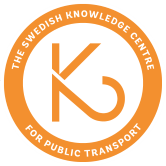The study of bus stops in Malmö is based on a two-part observation study: the first involves unstructured observation at different types of bus stops, including one larger exchange bus station (Gustav Adolf’s square), and several mid-sized and small bus stops. This study has a focus on observation of the waiting positions, individual and group behaviour, and identifying forms of territorial productions at different types of bus stops. The second part involves structured observation of waiting activities at the bus stops. This includes a direct observation and a video observation. In the direct observation, the researcher followed selected users’ activities from the moment they arrived at the bus stop to the moment they boarded a bus or left. The video observation was of 15 minutes on each occasion, filmed from a distance, and used to register users’ activities at the bus stops during the waiting duration.
The study shows that the opportunity for territorial appropriation is important for territorial complexity, as it contributes to the creation of heterogenous urban space. The co-existence of diverse form of uses and users – different forms and layers of territorial productions – stabilizes the waiting places through processes of territorialization. Territorial appropriation by a dominant group is however not desirable as it leads to poor adherence or neglect of social norms, which deter other passengers from being there. Repeated occurrence of these activities will destabilize the bus stop through fewer territorial production forms (less territorial complexity) as well as through territorial association where the bus stop is connected to just this negative activity.
